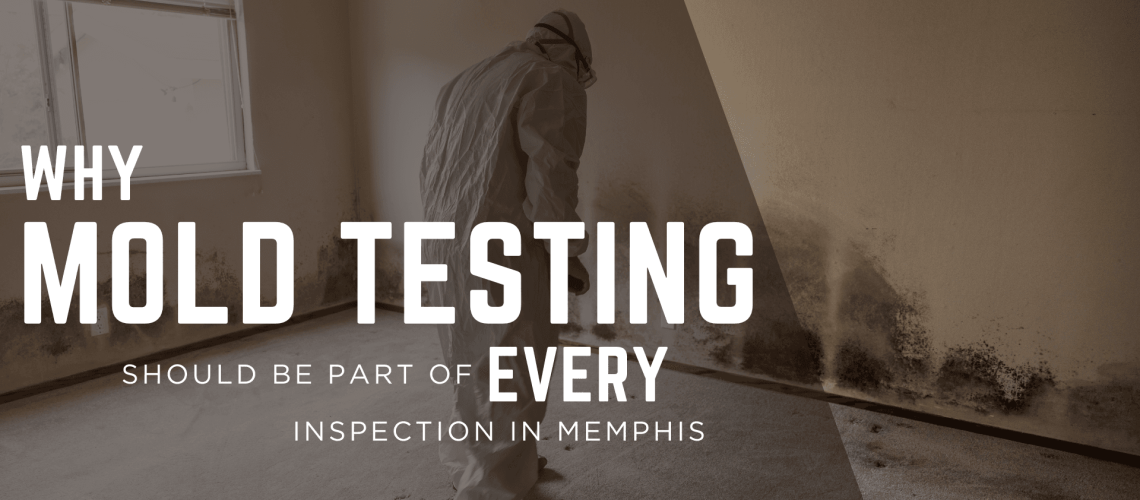When most people think about home inspections, they picture roofs, foundations, and electrical panels — not air quality. But in the Memphis area, one of the most overlooked and important parts of understanding a home’s condition is knowing whether there’s mold present and what type it might be.
Mold can grow anywhere moisture lingers — in crawl spaces, around HVAC systems, or behind drywall. It doesn’t always produce visible signs, and sometimes the home looks perfectly clean. That’s why professional mold testing is such a valuable part of the inspection process. It goes beyond what we can see and helps protect your investment, your indoor air quality, and your family’s health.
The Memphis Climate: Perfect for Mold Growth
Anyone who’s lived in West Tennessee knows how humid our summers can be. That humidity, combined with frequent rain and older homes with limited ventilation, creates ideal conditions for mold to thrive.
In crawlspaces especially, I often find elevated moisture levels or evidence of past leaks that could lead to growth. HVAC condensation lines, bathroom exhaust vents that terminate in attics, and plumbing leaks inside walls can all contribute without showing obvious surface signs.
Even newer homes aren’t immune — particularly those with tightly sealed construction and limited airflow.
What Mold Testing Actually Involves
At Upchurch Inspection, mold testing isn’t guesswork. I use air sampling and surface testing methods to identify whether mold spores are present in elevated levels and what species are detected.
Air samples are collected both indoors and outdoors for comparison. The results are analyzed by an accredited laboratory, which provides a detailed breakdown of mold types, concentrations, and what those results mean.
If needed, I also take swab or tape-lift samples from visible growth to confirm whether it’s mold, mildew, or another contaminant.
Why It Matters for Homebuyers
When you’re buying a home in the Memphis area, a standard home inspection will identify visible water damage or moisture intrusion — but not always hidden air-quality issues. Mold testing can reveal whether the home has elevated spores that could indicate hidden leaks, prior flooding, or inadequate ventilation.
Finding that information before you buy gives you leverage for repairs, remediation, or price negotiation — and it prevents unexpected problems after closing.
Why It Matters for Homeowners
Even if you already own your home, mold testing can help you catch small problems before they grow larger. Musty odors, persistent allergies, or damp spots around baseboards or windows are all signs worth checking.
Mold testing also provides peace of mind after plumbing repairs, roof leaks, or water damage cleanup. It confirms that remediation was effective and that the air in your home is clean and safe to breathe.
Taking Action on Mold Test Results
If test results indicate elevated spore levels, the next step is addressing the source of moisture. That may mean improving crawlspace ventilation, sealing foundation vents, repairing roof leaks, or adjusting HVAC drainage. In some cases, a professional mold remediation contractor may be recommended to treat affected materials.
Once the moisture source is controlled, the home environment becomes much less likely to develop future issues.
📞 Schedule Mold Testing in the Memphis Area Today
Serving Memphis, Bartlett, Germantown, Collierville, Arlington, and Lakeland, Upchurch Inspection provides certified mold testing and full home inspections for both buyers and homeowners. Testing includes air samples, surface swabs, and lab-certified reports with clear, actionable guidance.
📞 Call (901) 350-8885 or visit UpchurchInspection.com to schedule mold testing or add it to your next home inspection.


